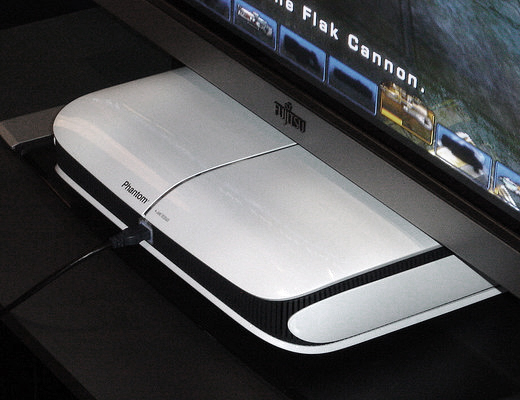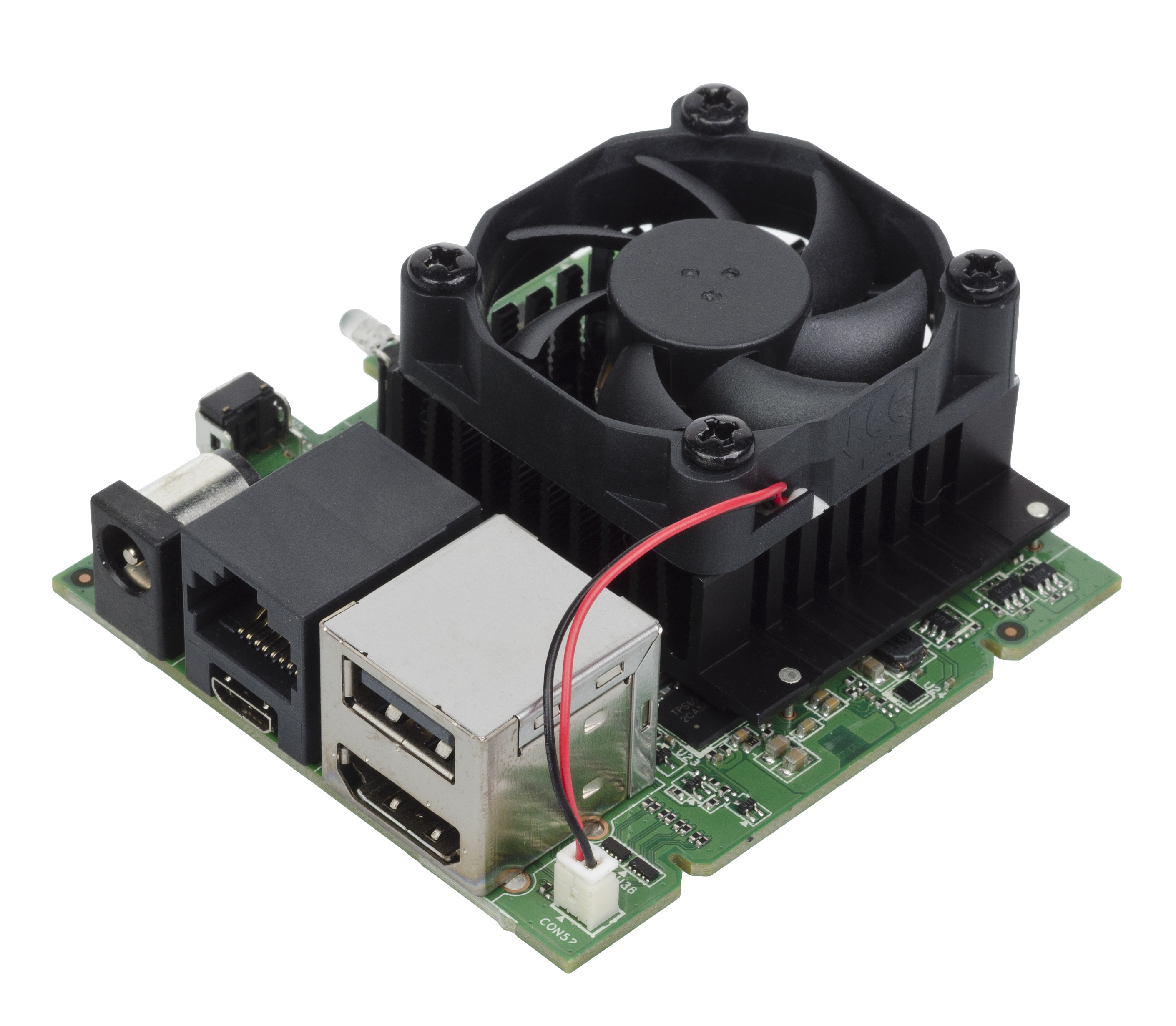|
Coleco Chameleon
The Retro Chameleon, originally called the Retro VGS then Coleco Chameleon prior to the loss of the Coleco Holdings (owner of the Coleco brand name) license, is a cancelled home video game console. Its creators have stated that it was inspired by the second to fifth generations (1976–1999) of home video game consoles, and like most consoles of those generations, the Retro VGS had planned to run all of its games on individual cartridges, as opposed to optical discs and digital download. The Retro VGS was not expected to support any manner of online connectivity whatsoever, meaning all hardware and software released would have been the final product, and would not have the ability to update after release. A Kickstarter campaign was initially planned to raise funds for the project, but this was later moved to Indiegogo one week before the start of the campaign when a physical prototype was not produced. On March 8, 2016, Retro VGS pulled down their online social media presenc ... [...More Info...] [...Related Items...] OR: [Wikipedia] [Google] [Baidu] |
Home Video Game Console
A home video game console is a video game console that is designed to be connected to a display device, such as a television, and an external power source as to play video games. Home consoles are generally less powerful and customizable than personal computers, designed to have advanced graphics abilities but limited memory and storage space to keep the units affordable. While initial consoles were dedicated units with only a few games fixed into the electronic circuits of the system, most consoles since support the use of swappable game media, either through game cartridges, optical discs, or through digital distribution to internal storage. There have been numerous home video game consoles since the first commercial unit, the Magnavox Odyssey in 1972. Historically these consoles have been grouped into generations lasting each about six years based on common technical specifications. As of 2021, there have been nine console generations, with the current leading manufactures ... [...More Info...] [...Related Items...] OR: [Wikipedia] [Google] [Baidu] |
Mini-DIN Connector
The mini-DIN connectors are a family of multi-pin electrical connectors used in a variety of applications. Mini-DIN is similar to the larger, older DIN connector. Design Mini-DIN connectors are in diameter and come in seven patterns, with the number of pins from three to nine. Each pattern is keyed in such a way that a plug with one pattern cannot be mated with any socket of another pattern. They are each drastically different from the other, with no simultaneously and directly overlapping similarities in (1) pin arrangement, (2) square key size and position, (3) circular shielding metal skirt notches and metallic additions: in this they differ from the nonstandard mini-DIN connectors which may have directly overlapping characteristics to each other or to the standard mini-DIN connectors. Notable usage Some notable examples of standard mini-DIN connectors include: * Mini-DIN-3 connectors were used in early implementations of Apple LocalTalk. * Mini-DIN-4 connectors a ... [...More Info...] [...Related Items...] OR: [Wikipedia] [Google] [Baidu] |
Video Game Controversies
Video game controversies refers to a wide range of debates on the social effects of video games on players and broader society, as well as debates within the video game industry. Since the early 2000s, advocates of video games have emphasized their use as an expressive medium, arguing for their protection under the laws governing freedom of speech and also as an educational tool. Detractors argue that video games are harmful and therefore should be subject to legislative oversight and restrictions. The positive and negative characteristics and effects of video games are the subject of scientific study. Academic research has examined the links between video games and addiction, aggression, violence, social development, and a variety of stereotyping and sexual morality issues. Areas of controversy Related to video game content Violence Video games since their inception have been the subject of concern due to the depictions of violence they may contain, which have heighten ... [...More Info...] [...Related Items...] OR: [Wikipedia] [Google] [Baidu] |
Vaporware Game Consoles
In the computer industry, vaporware (or vapourware) is a product, typically computer hardware or software, that is announced to the general public but is late or never actually manufactured nor officially cancelled. Use of the word has broadened to include products such as automobiles. Vaporware is often announced months or years before its purported release, with few details about its development being released. Developers have been accused of intentionally promoting vaporware to keep customers from switching to competing products that offer more features. ''Network World'' magazine called vaporware an "epidemic" in 1989 and blamed the press for not investigating if developers' claims were true. Seven major companies issued a report in 1990 saying that they felt vaporware had hurt the industry's credibility. The United States accused several companies of announcing vaporware early enough to violate antitrust laws, but few have been found guilty. "Vaporware" was coined by a M ... [...More Info...] [...Related Items...] OR: [Wikipedia] [Google] [Baidu] |
2010s Toys
1 (one, unit, unity) is a number representing a single or the only entity. 1 is also a numerical digit and represents a single unit of counting or measurement. For example, a line segment of ''unit length'' is a line segment of length 1. In conventions of sign where zero is considered neither positive nor negative, 1 is the first and smallest positive integer. It is also sometimes considered the first of the infinite sequence of natural numbers, followed by 2, although by other definitions 1 is the second natural number, following 0. The fundamental mathematical property of 1 is to be a multiplicative identity, meaning that any number multiplied by 1 equals the same number. Most if not all properties of 1 can be deduced from this. In advanced mathematics, a multiplicative identity is often denoted 1, even if it is not a number. 1 is by convention not considered a prime number; this was not universally accepted until the mid-20th century. Additionally, 1 is the s ... [...More Info...] [...Related Items...] OR: [Wikipedia] [Google] [Baidu] |
Intellivision Amico
The Intellivision Amico is an upcoming home video game console that is being developed and marketed by Intellivision Entertainment. It was originally slated to be released in October 2020, but repeated delays followed, leaving the console without a release date. The Intellivision, which was a home console in the 1980s that sold 3 million units, was produced by Mattel. Tommy Tallarico, a video game composer, bought a stake in the company that owned the branding for Intellivision, and then in May 2018, announced a planned relaunch of the Intellivision (which would later be named the Amico). The console is planned to target families, and is set up to only allow family-friendly games in its library. Intellivision Entertainment is working with developers (including people who made games for the original Intellivision) to create games for the console. The Amico features touchscreen controllers that dock into the console itself for charging, and can be played using an app downloaded ... [...More Info...] [...Related Items...] OR: [Wikipedia] [Google] [Baidu] |
ZX Spectrum Vega+
The ZX Spectrum Vega+ is a handheld game console based on the ZX Spectrum and designed by Rick Dickinson as a follow-up to the ZX Spectrum Vega handheld TV game which was released in 2015. Only a small number of Vega+ machines were released, before Retro Computers (who manufactured the devices) was wound up. Design and specification The industrial design was produced by Rick Dickinson, the designer of the original ZX Spectrum. The Vega+ uses Fuse to emulate the ZX Spectrum hardware. It is supplied with 18 pre-loaded games. Games are stored on a removable microSD card. History Announcement and funding As with the original Vega, the development was funded through the crowdfunding website, Indiegogo.com and surpassed its target of £100,000 in the first two days of campaigning in March 2016. The original intention was to supply the Vega+ with 1,000 games pre-loaded, as the Vega had been. Team split The original Vega was produced by Retro Computers, which consisted of managin ... [...More Info...] [...Related Items...] OR: [Wikipedia] [Google] [Baidu] |
Indrema
Indrema Entertainment Systems was a consumer electronics company famous for the Indrema L600 Entertainment System, a game console intended for independent game developers. Founded in 1999 by John Gildred, Indrema's goal was to create a video game console based on common PC hardware and the Linux operating system. The console would have been the only open source console on the market, as well as the only modern console to allow free software to be written for it. The console was expected to be released by the holiday season of 2000. An early developer unit was featured running Quake in the Indrema booth at LinuxWorld earlier in 2000. Those subscribed to Indrema's mailing list received a "top ten" list in the style of David Letterman in anticipation of the launch announcement. After being unable to raise enough capital to mass-produce the console, Indrema shut down on April 6, 2001. In his last Indrema chat session, Gildred revealed that the company needed more than $10,000,000 ... [...More Info...] [...Related Items...] OR: [Wikipedia] [Google] [Baidu] |
Phantom Console
Phantom Entertainment, Inc. (known as Infinium Labs, Inc. until 2006) is a company founded in 2002 by Tim Roberts which makes computer keyboards. However, Phantom is best known for the Phantom, a video game console advertised for Internet gaming on demand in 2004; it was never marketed, leading to suggestions that it was vaporware. The company's website was last updated in late 2011. History Infinium Labs was founded by Tim Roberts in 2002 as a private company. In January 2003 it issued a press release saying that it would soon release a "revolutionary new gaming platform" with an on-demand video-game service, delivering games through an online subscription. The press release had no specific information, but included a computer-generated prototype design. Due to the use of buzzwords and the lack of details, the product was derided nearly from the beginning by news sites such as ''IGN'' and ''Slashdot'' and in the '' Penny Arcade'' webcomic. The hardware and gaming site HardOCP ... [...More Info...] [...Related Items...] OR: [Wikipedia] [Google] [Baidu] |
Ouya
The Ouya ( ), stylized as OUYA, is an Android-based microconsole developed by Ouya Inc. Julie Uhrman founded the project in 2012, bringing in designer Yves Béhar to collaborate on its design and Muffi Ghadiali as VP of Product Management to put together the engineering team. Development was funded via Kickstarter, raising 8.5 million, becoming one of the website's highest earning projects in its history. Units started to ship to Kickstarter backers in March 2013 and were released to the general public in June 2013. It featured a store for applications and games designed specifically for the Ouya platform, the majority of which were casual games. Out of the box, Ouya supports media apps such as Twitch and the Kodi media center. It runs a modified version of Android Jelly Bean, with rooting being officially encouraged. The console's hardware design allows it to be easily opened up, requiring only a standard screwdriver for easy modding and possible hardware add-ons. All sy ... [...More Info...] [...Related Items...] OR: [Wikipedia] [Google] [Baidu] |



.png)

